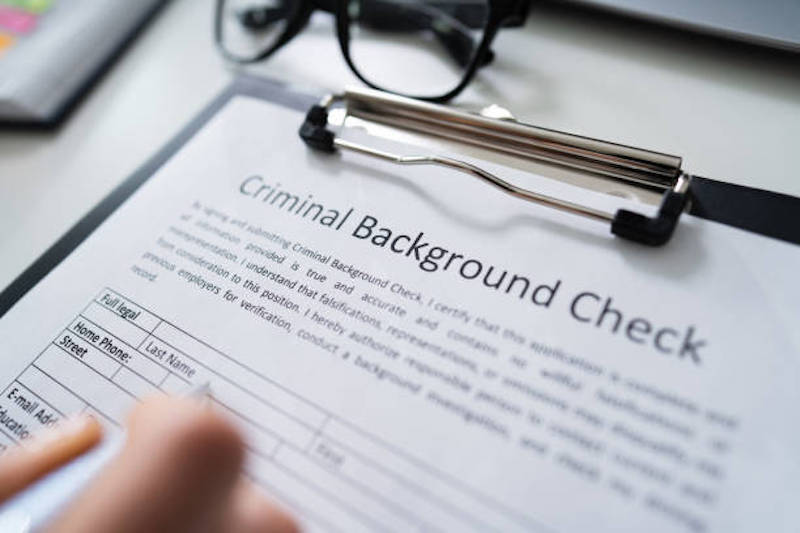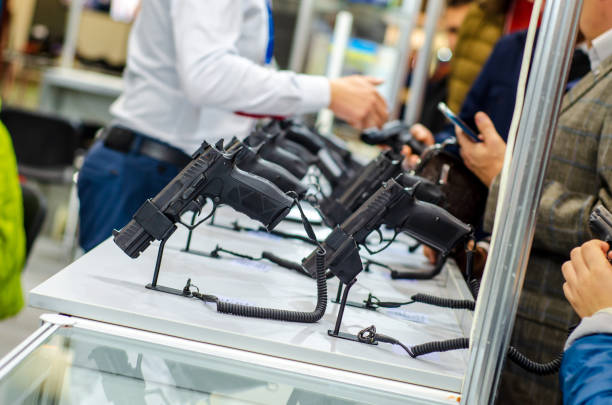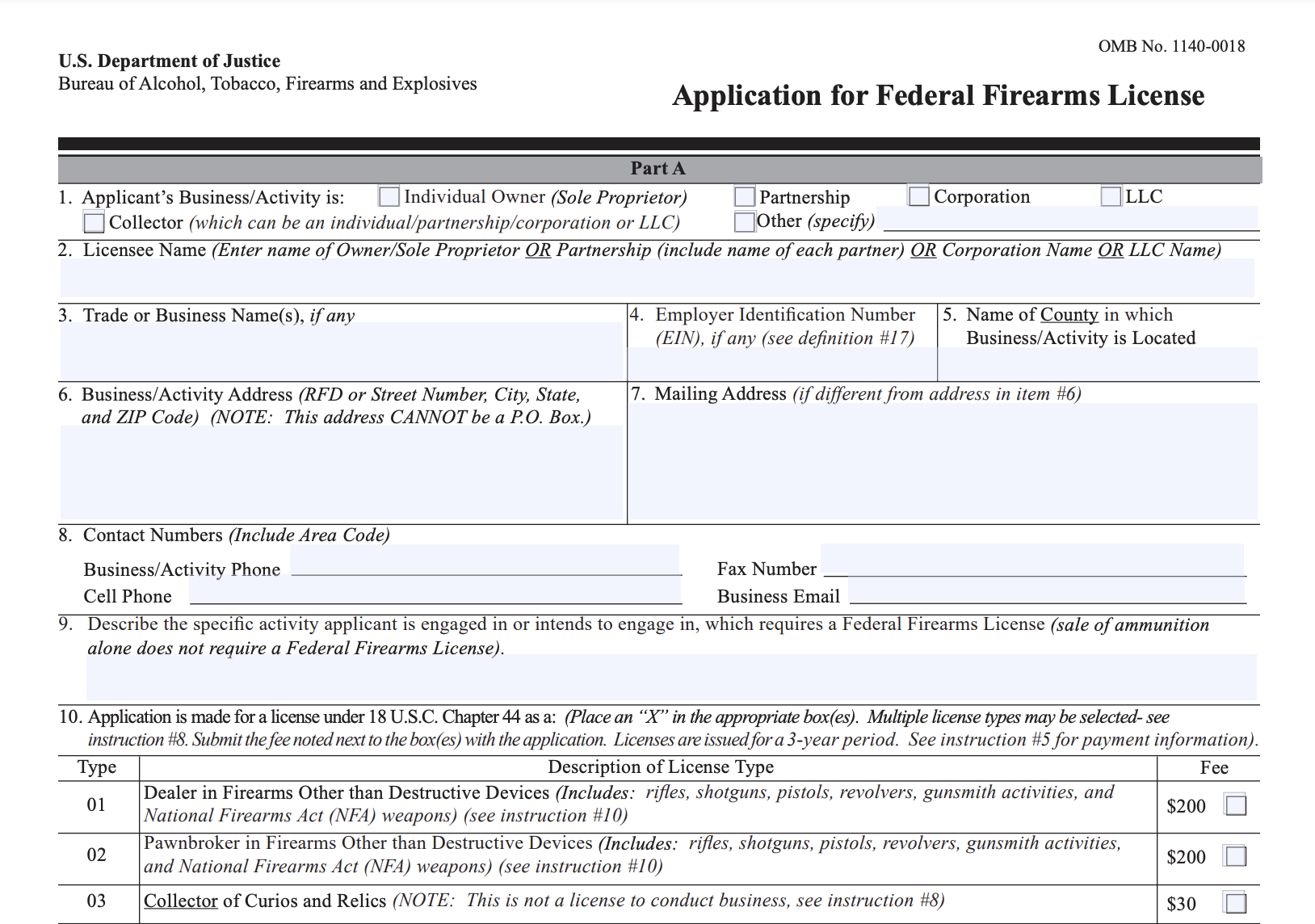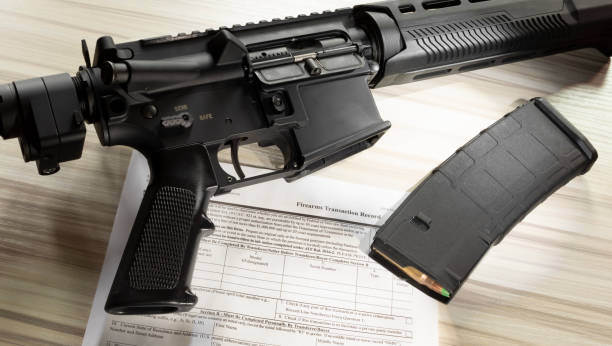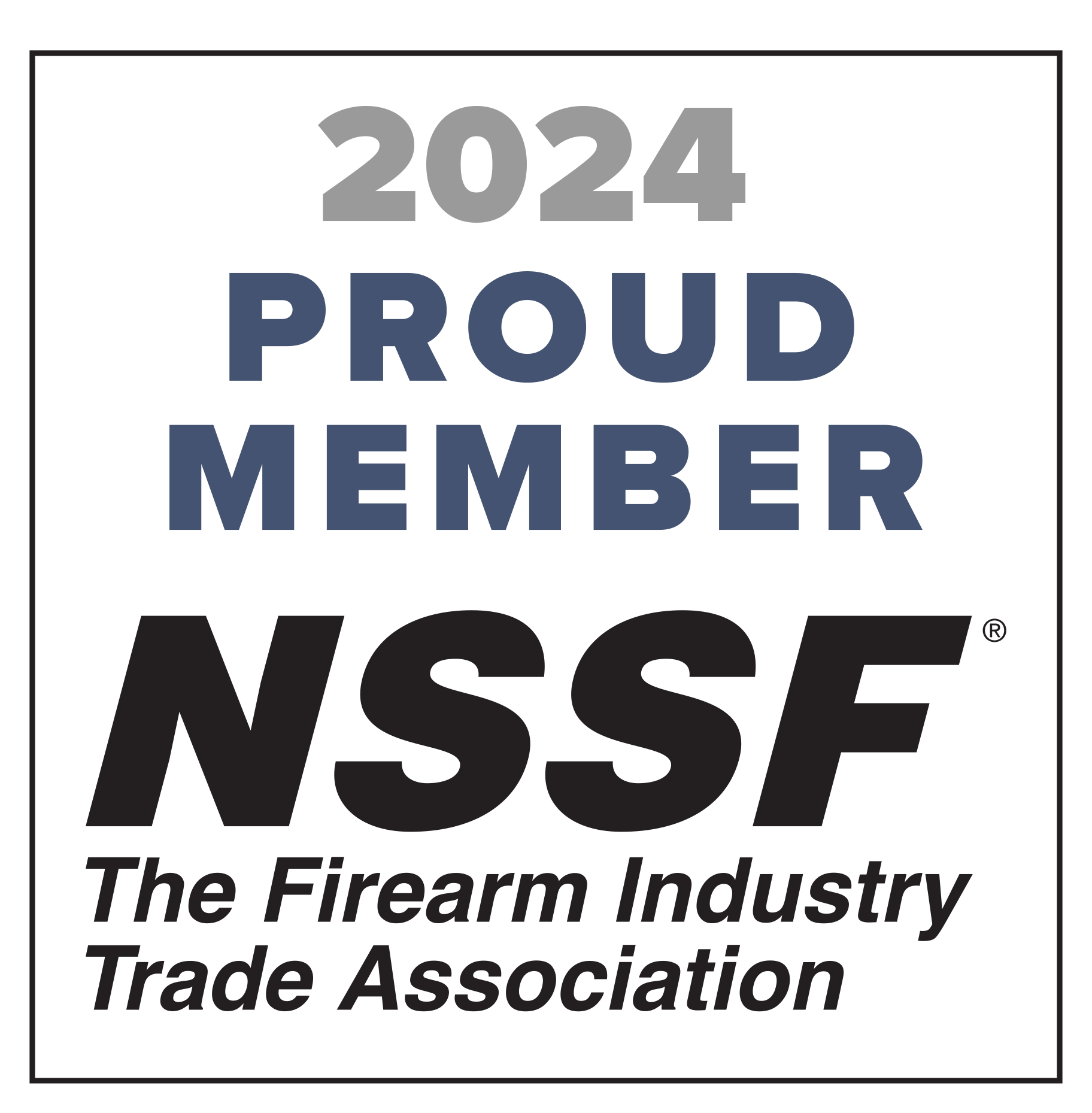Inevitably, you will be inspected by the ATF. These are just a part of the business. Learn how to pass an inspection so you can get back to making sales.
Inevitably, you will be inspected by the ATF. Don’t panic. These will become part of your business.
Even if the bureau doesn’t have cause, they may inspect your business once per year without a warrant. In actuality, it happens far less often than that due to insufficient resources.
In fact, the ATF says it only has the manpower to inspect every business, on average, once every six years. New businesses tend to see the investigator every few years. Old businesses who have never had serious compliance issues can go 10 years without hearing from the ATF.
You should expect an inspection if you received a warning letter or warning conference the previous year, sold a large number of firearms that were involved in crimes, or experienced numerous incidents of theft.
During an ATF inspection, the investigator will look at your A&D book to check that it matches your inventory. The inspector will verify that all Forms 4473 are filled out completely by you and the buyer. They may also look at your forms of multiple handgun sales, law enforcement purchase letters, and theft/loss reports (if any). They will verify the required signage around your premises.
ATF investigators aren’t out to get you. They want you to comply with regulations.
ATF investigators aren’t out to get you. They want you to comply with regulations. They’ll provide education and instruction. They’ll hand out resources if you need. They’ll even offer some business practice tips so you stay compliant.
The Consequences of an Inspection
If the investigator uncovers any violations, you’ll receive a Report of Violations. If the violations are serious, the ATF can issue a formal warning letter, call you to a warning conference, or—in the most extreme cases—revoke your license or deny your renewal.
Many of the ATF’s sanctions are entirely administrative. A formal warning letter or conference may not seem like more than a slap on the wrist, but they add up. Repeated violations causes deeper scrutiny, which can uncover more violations. Too many compliance failures will cost your license.
So how do you pass an ATF inspection? Unfortunately, there’s no secret answer here. The best strategy is to minimize your likelihood of making a violation by taking compliance seriously.
Avoid the Common Compliance Errors
To get your house in order, you first have to know the types of errors that are most common.
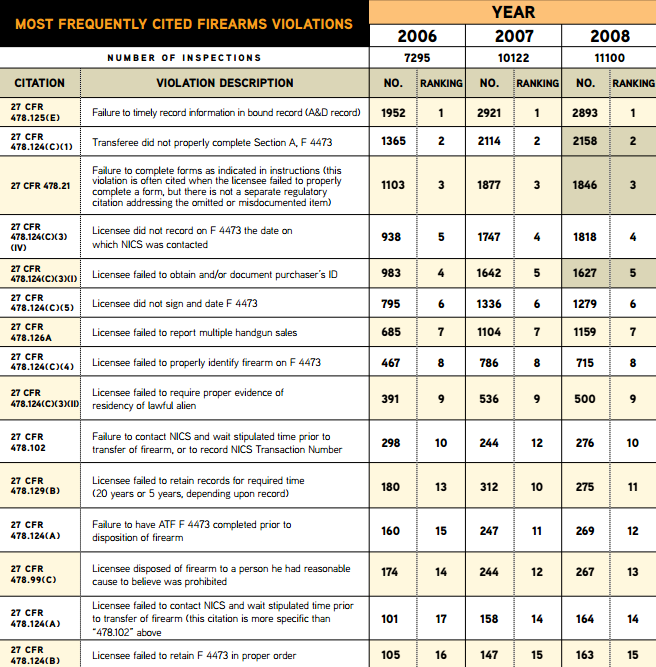
Source: nssfg.org
- You failed to properly identify a firearm on Form 4473.
- You didn’t verify that the buyer properly completed Section A of Form 4473.
- You failed to verify the buyer’s eligibility by performing a background check and verifying the buyer’s firearms license.
- Your inventory and A&D book do not agree.
- You didn’t record the date the NICS was contacted.
- You didn’t wait until the NICS completed a background check or their time elapsed.
- You failed to complete Form 4473 before the buyer left with the firearm.
- You didn’t wait the required delay before completing a sale.
- You didn’t make a photocopy or document the buyer’s ID.
- You sold a firearm to someone you had to cause to believe was prohibited.
- You failed to report multiple handgun sales.
- You failed to ensure traceability by collecting and verifying evidence of the buyer’s residency.
If you haven’t been careful with your paperwork, it’s best to go back and gather any information you need before you are randomly inspected. This may involve making a lot of phone calls to fill in the holes, but it’s much better than losing your FFL.
Rectify Your Inventory

Image credit: bullseyeindoorrange.com
Think of your firearms inventory like a checking account. At any given time, you want it balanced. You want to know which firearms you’ve sold and which ones you have on site. Your A&D book is like a check register. It catalogs this information so your inventory is balanced.
One of the most common errors FFLs make is a failure to enter firearms into their bound books in a timely fashion. About 25% of all violations can be attributed to this error. You must have open entries for every firearm you’ve purchased or received, even that one you bought 10 years ago that never seemed to sell.
“Timely” means within the business day. It’s best to meet this standard by filling out your acquisitions the moment you receive inventory and your dispositions the moment you process a sale or transfer. If you want to pass your inspection, your inventory and A&D book/software must agree.
The investigator will perform a Bi-Directional Serial Number Inventory. This is commonly referred to as a “book to physical.” The investigator will test your inventory tracking measures.
They’ll look at a serial number of a firearm in your A&D book and trace it to the firearm in your facility. For instance, the inspector may say, “Show me the gun that’s listed on page 25, line 18.” Then they’ll do the same thing in reverse: They’ll pick up a random gun and ask to see its entry in your A&D book.
The ATF considers missing inventory an especially serious violation. If you don’t pass this test, or your last inspection included unreported inventory losses, the investigator may require a 100% physical inventory verification. This is a long, painful process that goes through every firearm on site. You definitely want to avoid this.
Many FFLs report that inspectors pour through your records to find a transaction where the buyer was refused because of the results of the background check. (You’re bound to have a few of these.) He or she will want you to show them the firearm (in your store or the record of its sale) to see how it was handled.
If you begin to process a firearm, but the purchaser fails the background check, make sure you are very careful about documenting that gun’s future movements.
Inventory management is a big part of any retail business, but the regulation requirements in the firearms industry make it that much more complicated.
Make Yourself Compliance-Minded
The most effective strategy is to make yourself aware of the ATF’s regulations so you can comply with them. You can do this in two ways.
1. Stay abreast of every change the ATF makes.
Unfortunately, there aren’t many tools or resources designed to educate licensees about the government’s regulations. Reading forums on the Internet and gathering rumors at trade shows aren’t reliable sources either.
Another option is to hire a consultant to occasionally check your business for compliance mistakes. This is a useful way to find out what you’re doing wrong right now, but it doesn’t help you when regulations change. The consultant can’t be there every day to watch you work. Plus they are expensive.
Large dealers have the luxury of hiring a full-time compliance czar. This person routinely checks that every document is filed and every field is completed. Several ex-ATF investigators offer a service like this. But you have to do millions of dollars in sales to afford this type of position.
2. Use a tool that worries about compliance for you.
It’s best to handle your compliance by putting it in the hands of something that doesn’t make mistakes or take days off: software.
Compliance software for bound books forces you into a streamlined, task-oriented workflow that keeps you on track. You’ll be far less likely to make a mistake, skip a question, or submit erroneous information.
When regulations change, the software updates to compensate. You don’t have to be aware that any changes took place, but one day you’ll find yourself in front of a new question or field to complete.
Cooperate With the Investigator
Cooperating with the investigator will foster a pleasant relationship with him/her and the ATF. Make yourself available during the inspection to help the IOI finish. This will send them on their way faster and help you resolve any issues quickly.
Some investigators will ask for additional documents that the Gun Control Act and ATF regulations do not require you to provide. They can ask to see anything. You can decline, but that isn’t always the right decision.
It can be smart to offer additional records if it helps the inspector reconcile your inventory. For instance, if one of your Forms 4473 was missing the buyer’s middle initial, you could offer to pull that information from your credit card receipt. Even though the investigator has no authority to see that document, you could resolve the violation on site.
The Big Day
If your inventory is in order, your forms are complete, and you’re ready to assist the investigator with whatever he or she needs, there’s nothing else you can do to pass the inspection. If you receive any violations, accept them honestly and follow the investigator’s procedures to fix the situation.


